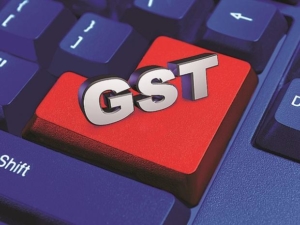The tax season is just around the corner, and company incorporation businesses are required to look for reliable and trustworthy accounting services Singapore to take the matter in their hands. Working with the best accounting firm in Singapore allows a SME (small-and-medium-enterprise) business to enlist the prerequisites for the collection of GST and other trivial taxes. Additionally, they should consider opting for miscellaneous services, such as, corporate tax services, secretarial services, and payroll services to prepare financial reports of their business.
Nonetheless, businesses that are filed under GST-registration, are required to levy a considerable GST percentage on their commodities, products, and services. The GST amount should be collected from the customer to submit to the Singaporean government.
Most businesses are adamant on collecting falsified GST amount from their customers under a false pretense, and the IRAS is taking a strict action against businesses that are participating in incurring GST on prohibited items.
As per IRAS regulations, a business is not required to collect taxes on that commodity that is categorized under an exempt supply (zero-rated supply). The act is regarded illicit and illegal by the IRAS authorities, and it may put the practices of the businesses at a stake. Furthermore, a business should refrain from charging an excess GST amount than the suggested prevailing rate.
The authorities do not take this matter nonchalantly, and it reserves the rights to charge the offender with a penalty, including a considerable jail time length. However, when the perpetuator is brought to the court, the comptroller will evaluate each phase of the case before announcing its verdict.
If the case rules out in the favor of the offender then, it will be required to pay the redeemable amount to the comptroller to resolve the situation. Following, we have highlighted the scenarios that might indicate a comptroller’s role on relinquishing punishing or withholding punishment in the favor of the offender.
Scenario-1: When the offender has a reasonable excuse for its act but, no negligence
Let’s say that business A specializes in selling perfumes in Singapore. The business is performing fine as well as it participates in organizing charity to raise funds for underprivileged children in Singapore. As a way to fund the charity, Business A was sponsored by one of its supplier, Business B), to settle the cost of hosting the event. On the contrary, Business A did not pay any compensation or remuneration to Business B.
Nonetheless, Business A charged Business B with unlawful and unfair GST amount, which was later resolved by Business A including the estimated GST amount in its income tax statement.
Scenario-2: When a business is negligent with no reasonable excuse
Business A work as a property developer in Singapore, and it participated in charging GST on one of the residential properties in Singapore. The incurrence of the unexpected GST took everyone by a surprise, and it provoked the authorities to conduct a comprehensive research to look for errors in the financial statements and tax invoices issued by Business A.
Nonetheless, it was emphasized that residential properties in Singapore share a constant GST treatment; therefore, the negligence was made on Business A’s behalf. As a result, Business A did not consider the GST charge on the sale due to it being an exempt supply.



QUICK ENQUIRY FORM